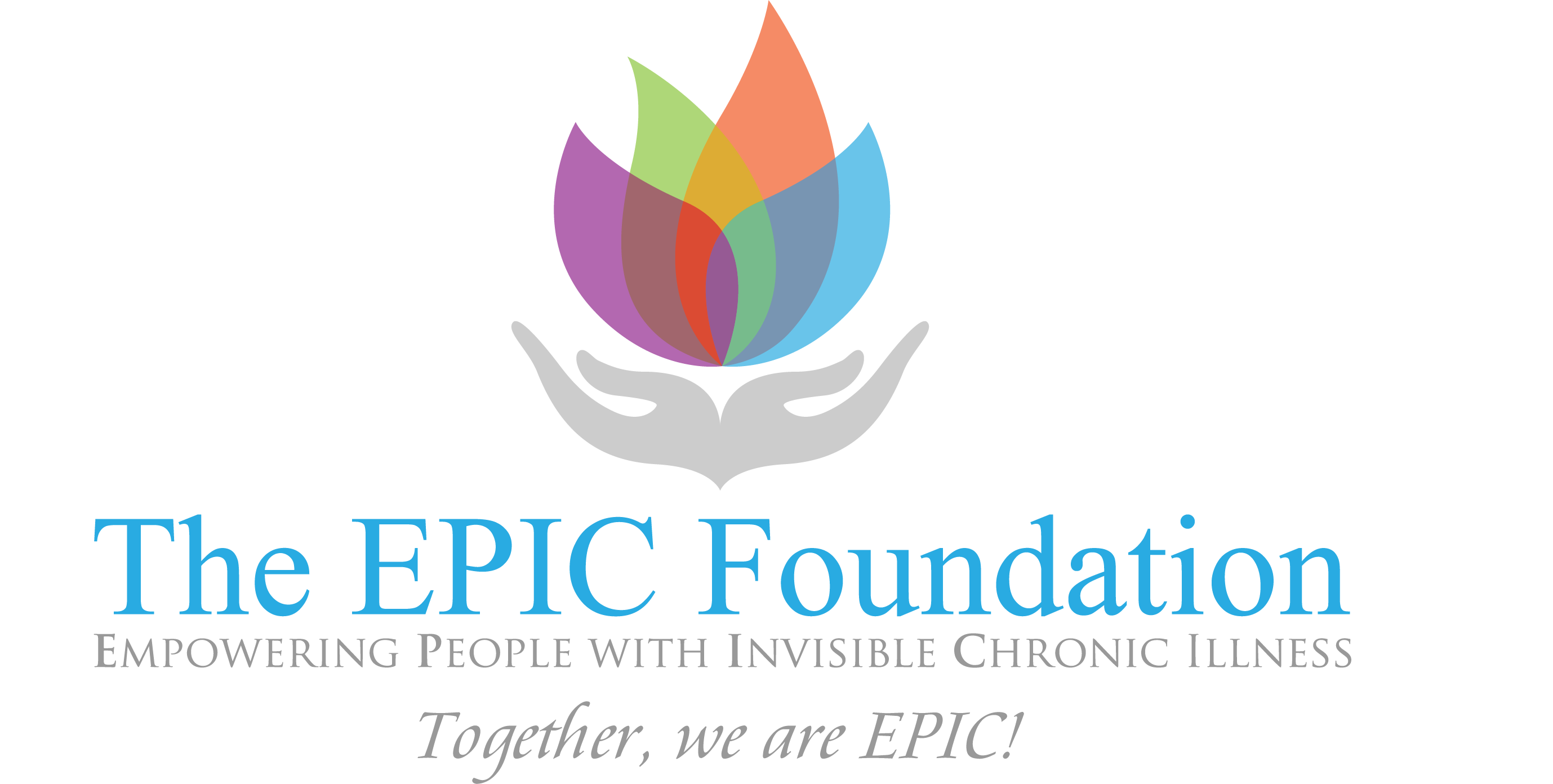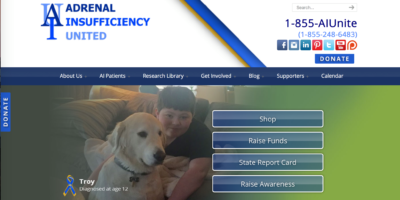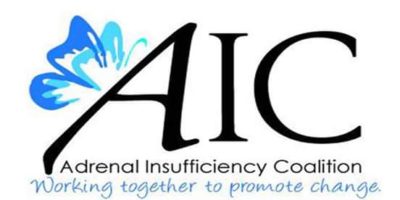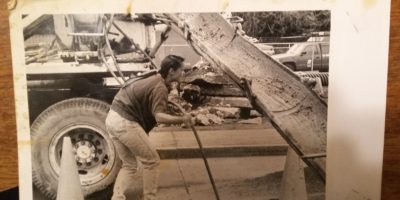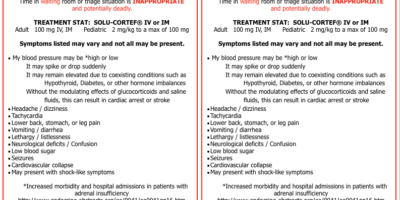Maria Stewart-Person of the Month- July 2017
The person of the month for July, 2017 is Maria Stewart. The EPIC Foundation is pleased to highlight this amazing advocate and warrior! Despite fighting her own battles with chronic illness, Maria works tirelessly to advocate for and support others in the adrenal insufficiency community! She, herself, is truly epic!
Maria is the Director of the Adrenal Insufficiency Coalition (AIC) and manages the AIC public page. She’s also a Board Member of Adrenal Insufficiency United (AIU), as well as moderator for the support group, Adrenal Insufficiency Support. In her role as moderator Maria helps patients locate documents for use in the exam room. Adrenal Insufficiency United empowers patients living with adrenal insufficiency through advocacy, support, and awareness. They change lives every single day! AIC works to improve communication between patients and physicians by supplying information and documents. In July of 2016, AIU consolidated with AIC, creating a broad platform to address issues faced by the adrenal insufficient community. The consolidation with AIU allowed Maria the opportunity to collaborate with physicians to create documents that help patients and physicians communicate better.
Maria’s passion for helping others stems from her many years battling chronic illness and her search for a correct diagnosis. Her personal journey with adrenal insufficiency, from, victim to advocate, fuels her determination to help others battling the same illness. She knows how it feels to be a patient who is dismissed or has been a victim of malpractice. Maria has taken her adversity and turned it into an opportunity to empower others. When she is able to provide resources that help patients receive better care, she feels it gives meaning to her own suffering and in her own words, “creates beauty from ashes.”
Maria describes herself as being an athletic overachiever in her past life, always busy and moving. She had her first severe head injury when she was five years old which she suspects began the cascade of events leading to her illness. Maria had a rough childhood with physical abuse, followed by a string of severe injuries, including a fractured spine.
Maria had indications of Adrenal Insufficiency all of her life. Her symptoms included low blood pressure, nausea under stress, salt cravings, and dysfunctional sleep patterns. Maria suffered a fourth head injury at the age of thirty-five and also had a hysterectomy that same year, negatively impacting her hormones. The episodes began the following year: Once a month, she felt like she had the flu, but she knew it wasn’t the flu. She didn’t have a fever, but rather low body temperature, and overall body pains, severe weakness, and abdominal pain. These episodes became more frequent, ultimately leaving her bedridden.
Maria visited doctor after doctor with no relief. The first doctor diagnosed her with Fibromyalgia. Subsequently, no doctor would look into her symptoms further. No one thought to check her pituitary, even with her history of head injuries. For seven years she followed their recommendations to take anti-depressants and exercise. As her health worsened, she realized the doctors didn’t know how to help her.
Out of desperation, Maria quit all of her medications, changed her diet, went organic, and fired all of her doctors. She consumed detox shakes hoping they might “save” her. She quit smoking and researched nutrition. Although Maria acknowledges that these measures helped her learn better self-care, she now understands it would have never replaced her deficient hormones.
By 2010, Maria had noticeably declined and her mobility significantly decreased. Someone told her of a hormone doctor two hours from home that might help her. When her testosterone, estrogen, DHEA, and progesterone were tested, they came back zeros. Maria finally had an answer! As those hormone levels were brought back in range, the symptoms improved. Unfortunately, it was only part of the picture. Sadly, the physician who helped Maria passed away from cancer two years later and the clinic was purchased by another medical group.
In the summer of 2014, Maria was under a lot of stress and she began having stabbing pains under her ribs and many of the episodes were intense. She met the new nurse practitioner during her regular visit at the clinic and described her symptoms. That nurse practitioner said that Maria may be having adrenal problems and suggested that she see an endocrinologist. She made an appointment right away. She had a feeling of impending doom and feared she might die before she was able to get help. Maria’s husband drove her to the appointment. They were full of hope. It faded fast in the first few minutes of the exam. The endocrinologist looked at the hormone labs that she’d brought in (They included low thyroid, DHEA, estrogen, progesterone, and testosterone). He said he didn’t know how to read the tests and that they “had nothing to do with adrenals anyway”. The doctor also said that Maria needed a chiropractor for her back and some Cymbalta for depression. He refused to order a cortisol lab when she requested it. Maria’s husband stepped in and the test was ordered. The endocrinologist repeated his conclusion that her issues couldn’t be adrenal and there was no hurry to get the test done. The next morning her husband took her to the local hospital to have it drawn. During a conversation with the lab tech, Maria discovered that the lab tech herself, had been through an ordeal with her adrenals. She insisted that Maria call the nurse practitioner before leaving the hospital to let her know what was going on. Maria did and the nurse practitioner sent her back to the lab for a comprehensive metabolic panel. The results showed critically low sodium and potassium and the Nurse Practitioner called and gave orders for fluids and hydrocortisone. Finally, Maria had answers and a name for her sickness!
Maria’s adrenal crisis in December of 2014 was the culmination of steady physical decline over a fifteen year period. It left her too weak to stand for more than a few minutes at a time. Maria describes feeling a range of emotions. She says, “I felt isolated, confused, and frightened. I couldn’t understand why the doctors I’d consulted over the years had not mentioned my adrenal glands or tested to see if they were functioning.”
Maria went from confused to angry as she proceeded to research adrenal insufficiency, the illness that had robbed her of her former life. Maria says that the more she read, the more she saw gaps in medical education, communication, and patient care. She knew that had she not found her answers, she may not have survived. Maria joined online adrenal insufficiency support groups and discovered an entire community of people dealing with the same issues.
Maria describes herself as an action-oriented person. She has always been proactive. During the grieving process she traveled from “why me” to “something must be done”! Maria attributes learning these valuable lessons to her time spent in the support groups. She learned she wasn’t alone, there was a serious flaw in the patient care system, patients with an early diagnosis retained a better quality of life than those who spent years looking for a correct diagnosis, and that there were really great people out there working on solutions. In Maria’s own words, “Working together to create change was the solution”. Her belief in working together provoked Maria to connect with like-minded individuals.
Maria was frustrated that credible medical information was out there but not being used effectively. After many hours on the couch analyzing the problem her answer was to create an organization focused on getting patients and physicians reading from the same page, and speaking the same language. She came up with the name Adrenal Insufficiency Coalition, found five women to invite to her project, and detailed her vision in a strategy plan. The Adrenal Insufficiency Coalition was born in January of 2016.
In the beginning, the members of AIC read a lot and discussed how to be effective in their mission. One of the members had a child with adrenal insufficiency. She took the current guidelines to the doctor’s appointment and was able to get better treatment for her daughter as a result. They saw the power that credible documents could have and it became part of the foundation for their efforts.
They started a public page for the Coalition and began publishing documents with notes on how to use them in the exam room. About six months into their project, they were noticed by Jennifer Knapp, the Executive Director for the non-profit organization Adrenal Insufficiency United (AIU).
Maria knew Jennifer from the support group and admired her for her strength and dedication to helping the Adrenal Insufficiency (AI) community. They talked about consolidating the two groups with the belief that banding together would have a bigger impact. Their talks were productive and in September of 2016, they consolidated into one organization. AIC now operates as the research division of AIU and maintains an online research library at their website, aiunited.org
AIC and AIU often target issues facing the AI community through topics discussed in the support groups. A prominent issue was steroid tapering and how patients were repeatedly put at risk of crisis. In response to that, they developed the “Glucocorticoid tapering and adrenal suppression testing guide”. They worked with top physicians to compile everything they could find on the subject into one document. They felt by creating an easy to use document, they could improve communication between doctor and patient and help keep patients safe during the weaning process.
Their ideas and projects also come from personal experiences that other patients can relate to. One of their members, Des Rolph, acquired adrenal insufficiency as a result of HPA axis suppression caused by steroid treatment for another condition, asthma. She knew first-hand the lack of information regarding possible adrenal crisis for patients taking steroids. She created a brochure for physician waiting rooms advising patients to discuss the dangers with their physician and to make a crisis plan in case of emergency.
The Coalition remains a small, core group of ladies. Their members are in three countries and each one brings their unique talents to the group. This is how Maria describes them in her own words: “Des Rolph in Australia is passionate about helping patients with adrenal suppression get the care they need. Her calm, kind voice keeps us all sane when things get crazy. Michelle Dalton, also in Australia, shows us how to participate in life despite the challenges. She brings her experience running advocacy organizations to the group and keeps us all laughing. Gail McArthur lives in Canada. Her focus is in helping patients overcome isolation and finding ways to connect in spite of the physical limitations we face as chronic illness patients. Gail has a keen eye for detail and often sees things the rest of us miss. Rowena Anewor also lives in Canada. Rowena comes from a scientific family. Her analytical mind is an asset to the team. She understands complicated medical concepts and can locate a document in a flash. For myself, I bring organization, love of community, and my skills as a writer to the team. We believe in group dynamics when solving problems and tackling issues. I think this is one of our strengths.” Maria believes in coming together, and using each individual’s strengths for forward movement of the mission and vision.
The AIC ladies connect with the AI community through social media, namely through their Facebook page. They publish a mix of information ranging from complicated medical research to easy infographics. Their Sunday posts are memes with messages of encouragement and support. They receive questions and feedback from fellow patients that help keep them motivated and open new avenues for research.
Maria’s world view and her perception of role models in her life are philosophical. She said she has “always admired women who persevered through difficulty to become something more, women such as Maya Angelou, Frida Kahlo, and Helen Keller.” She sees reflections of these women in the people she works with. In her own words: “I am lucky to be surrounded by intelligent, strong people, who believe in working together and helping others. They keep me motivated and focused.”
Maria found a path through illness to something more, the chance to take those difficulties and transform them into a meaningful contribution for others facing the same battle. People who make this journey form a chain of giving, and Maria is grateful to be a link in that chain. She believes that a victory for one, is a victory for all. The EPIC Foundation is ecstatic at the opportunity to collaborate with Maria Stewart and AIC/AIU in the future. We share the same vision, we are stronger together! We proudly honor our person of the month: Maria Stewart!
To learn more about Maria Stewart and her amazing work, please visit: https://www.facebook.com/pg/AdrenalInsufficiencyCoalition
Together, We are EPIC!
